Pregnant mothers in South Sudan raise fears of coronavirus affecting their babies and well-being
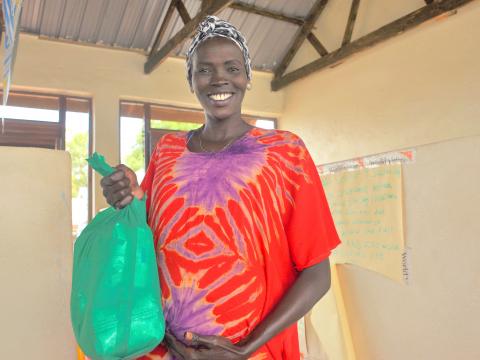
“I am scared of getting the coronavirus and passing it to my baby while on delivery. The hospital in Juba is full of people and there are few health workers”, says Achol, a pregnant mother of two, She also adds, “I am so worried but there is nothing I can do. I cannot afford to go to a private clinic.”
World Vision’s nutrition program in Juba, South Sudan’s capital is supervised by 40 nutrition staff composed of four nurses and 36 assistants, supported by 127 community nutrition volunteers, now includes COVID-19 awareness and prevention in its campaign.
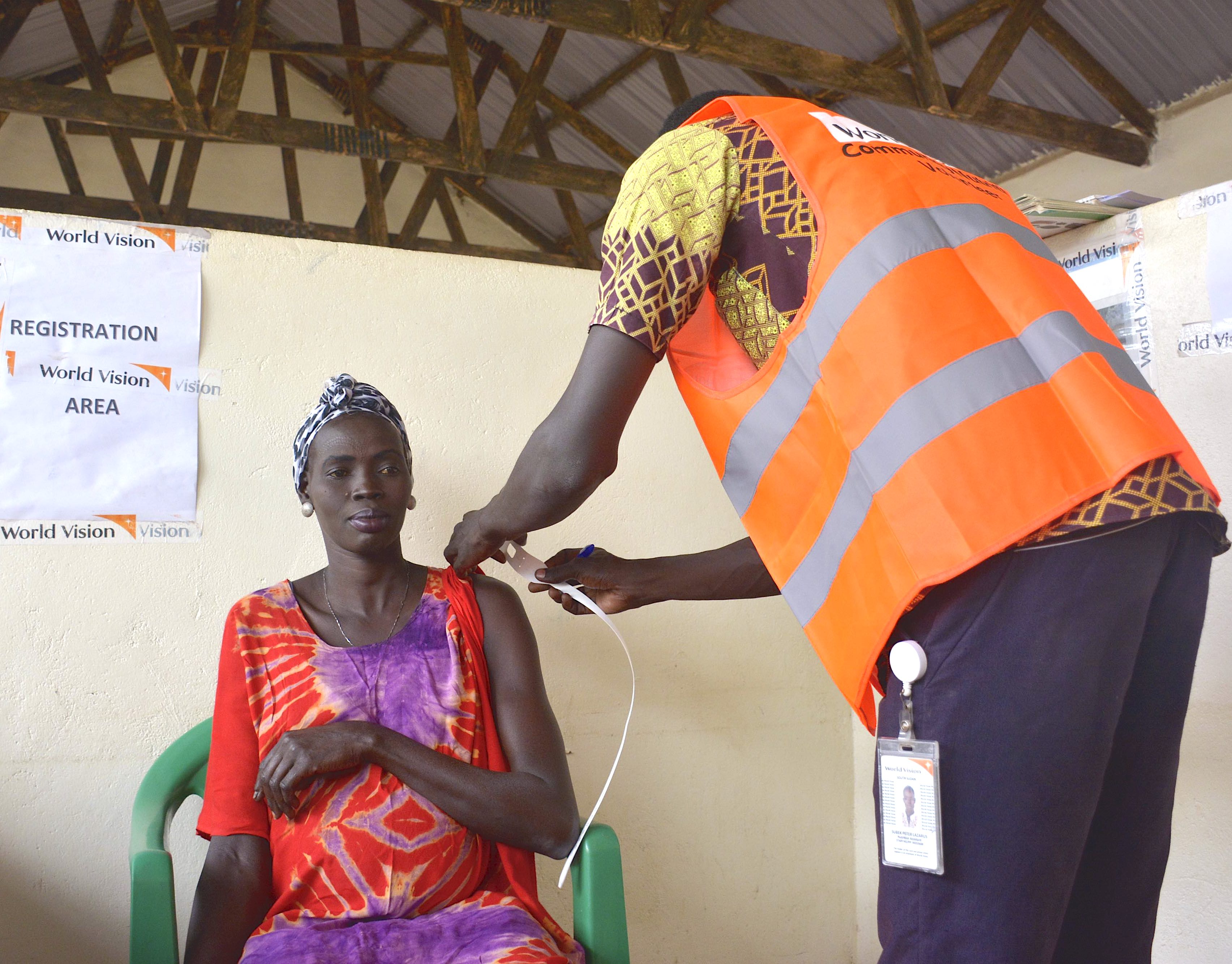
With the ongoing Covid-19 situation, the nutrition staff and volunteers have been training mothers like Achol on how to take mid-upper arm circumference (MUAC) measurements for their children. They are provided with MUAC tapes commonly termed as ‘family MUAC’ to enable them to monitor the nutritional status of their children at home.
Achol, like many other mothers, is not able to regularly join the peer support services due to Covid-19 restrictions to have smaller group meetings.
Related Story: COVID-19 is turning into a nightmare for mothers worried of their children
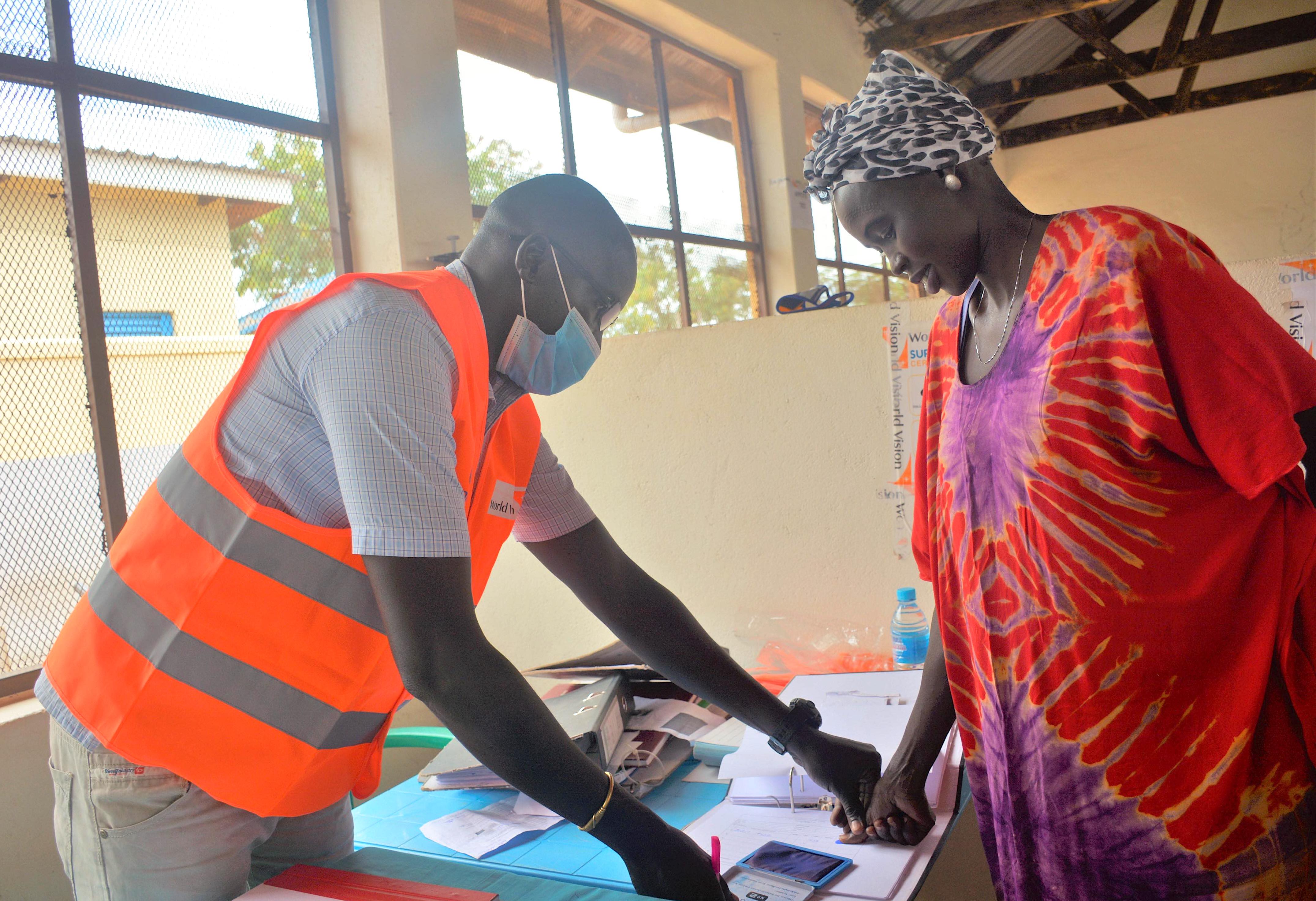
According to a Rapid Gender Analysis Report on COVID-19 done by the Ministry of Humanitarian Affairs and Disaster Management and the Ministry of Gender, Child and Social Welfare, supported bt the UN Women in South Sudan, the country’s vulnerability to the COVID-19 pandemic is heightened by its weak healthcare system and shortage of health workers. It is still on the road to recovery after the six-year civil war.
I was treated in two hospitals but still I did not recover. I was referred to World Vision’s nutrition center and got admitted to the program.
At present, the report states that “only 22 percent of health facilities are fully functional which has rendered 3.6 million people without any health access”. There is only one doctor per 65,000 people as the health sector is underfunded.
Watch Video: Brave mothers of South Sudan get on with their livelihood despite the pandemic
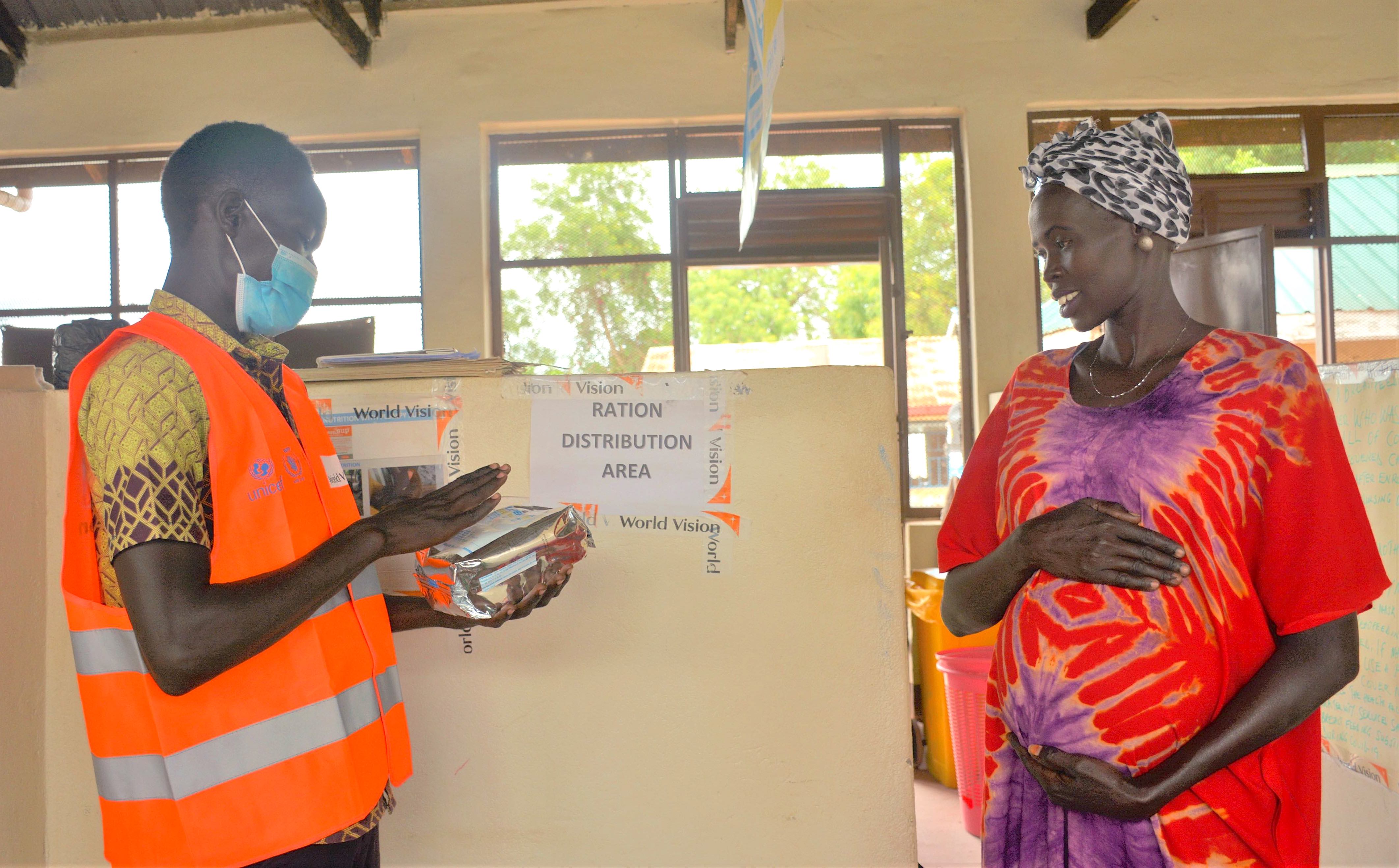
Achol Majak mother of two now, and eight months pregnant, is excited to welcome her baby in a few weeks. She previously experience miscarriage and is now keen to protect her pregnancy and deliver the baby healthy.
Her life also got endangered in the process and became malnourished due to stress and loss of appetite. “I was treated in two hospitals but still I did not recover. I was referred to World Vision’s nutrition center and got admitted to the program.”
Watch Video: The crucial role of peace in South Sudan's progress
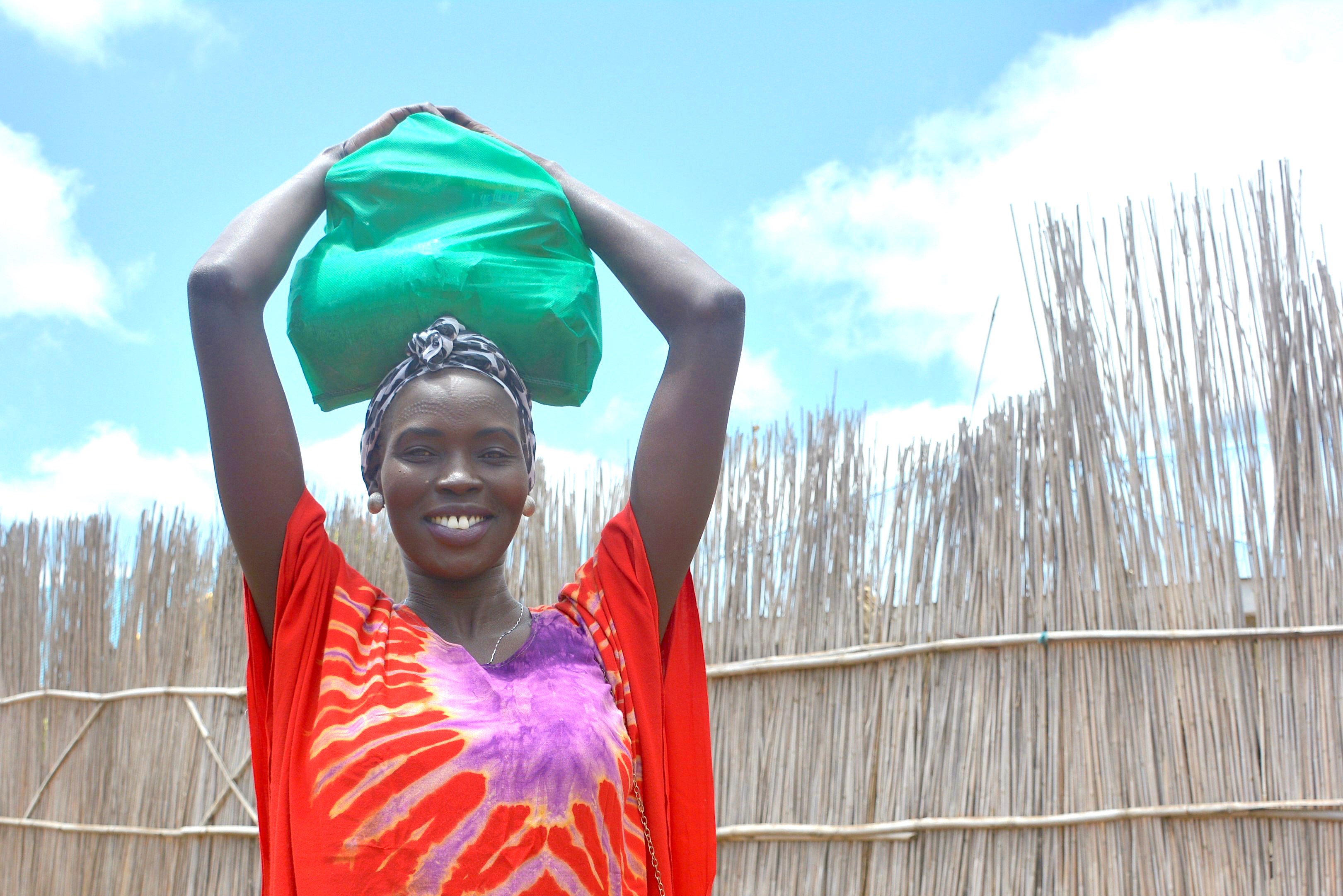
She said the support she received saved her as well as her pregnancy. “I am grateful that that my baby survived and we will meet very soon”, Achol says happily. As she reflected on her condition, Achol shared how tough it is to get pregnant during this COVID-19 pandemic.
“COVID-19 is not easy for pregnant mothers like me. Many women in my community lost their babies due to lack proper nutrition. Since the lockdown, most of us stay home and wait on our husbands to provide. But their income is not enough to feed the family. I thank God and the World Vision team”, she concludes.
Related Story: Women sew face masks to earn income and protect their own communities
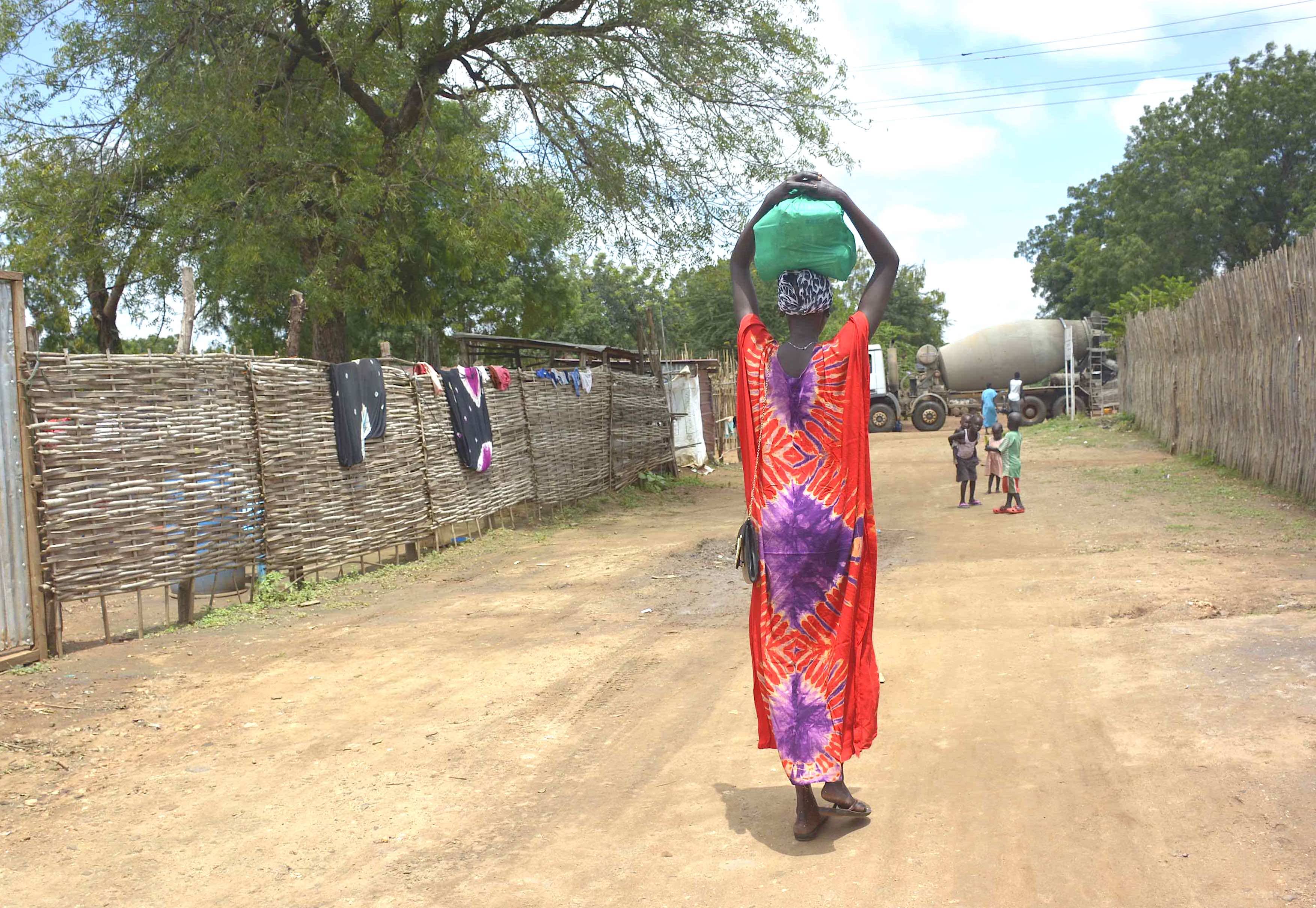
Related Story: A humanitarian's plea: We must unite to rebuild South Sudan
Story and photos by Scovia Faida Charles Duku, Communications Coordinator